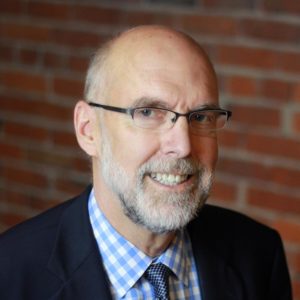Narcissism and Culture

In our current political landscape, we are witnessing a deep longing for an omnipotent father. This longing is also a prominent feature of many religions, including Christianity. In this workshop, Doug Hansen, MSW, invites us to think about the developmental role that such a father-figure plays for human beings, and how the loss of such a figure can evoke a grieving process that facilitates personal and spiritual growth. Such a loss also contributes to narcissistic injury and a dystopic cynicism of “doer/done to” relationships. At the heart of this discussion is the capacity to love and be loved in relationships impacted by narcissistic tendencies.
The morning session (9:30-11:30am) will focus on how narcissism shows up in culture specifically in the areas of social media, the political sphere, and the structure of Christian leadership. The ubiquitous nature of vulnerability, the need to establish boundaries, and the question of trustworthiness will be central to the discussion. The session will be conversational and offer space of Q&A.
Following a break for lunch (11:30am-12:30pm), the afternoon session (12:30-4:30pm) will focus on clinical treatment of narcissistic clients by psychotherapists including identifying elements of narcissism, dynamics of narcissistic development and treatment, and the necessity of engaging in healthy and sustainable processes of rupture and repair. Through geared toward clinicians, this session will open to the public and include lecturing, group work, and discussion.
Attendees have the option register for the full day workshop, or, choose just the morning session. Six (6) continuing education units will be provided to full event attendees. Seattle School students have the option to charge this workshop to their student accounts; to register and choose this option, contact Elliot Huemann at ehuemann@theseattleschool.edu.

Doug Hansen, MSW, ACSW, LICSW, BCD, is a relational psychoanalyst in private practice in Edmonds, Washington. He is a Washington State Approved Supervisor and an adjunct professor at The Seattle School of Theology & Psychology and Seattle University. He is a founding member of Relational Psychoanalysis and Psychotherapy of Seattle.
